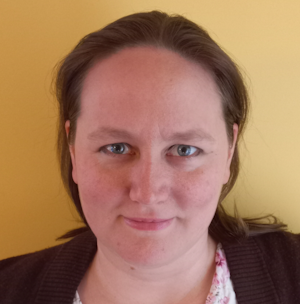Laboratories

Agnieszka Tudek, PhD, DSc
Laboratory of RNA Processing and DecayResearch Scope
Regulation of mRNA transcription and co-transcriptional events along with degradation are key for adjusting gene expression in response to stimuli. One line of our research aims to describe regulation of nuclear and cytoplasmic mRNA decay by the 3’end polyadenosine tail in both yeast and human cell lines. Another is focused at uncovering the mechanism by which the human PAF complex and its co-factors, which we have identified recently, regulate splicing.
Research
Main Scientific Achievements
- We showed that transcription of non-coding RNAs in S. cerevisiae is mechanistically coupled to decay by mutually exclusive interaction of Nrd1 with the RNA polymerase, Sen1 helicase and Trf4 protein involved in RNA degradation.
- We showed that the nuclear RNA export block in S. cerevisiae results in a massive degradation of newly made mRNAs, due to sequestration of the nuclear polyA-binding protein Nab2, indicating that the nucleus is a highly degradative environment for mRNAs.
- We developed a method for simultaneous measurement of new RNA production and transcription using 4tU metabolic labeling and high throughput RNA sequencing.
- We showed that the synthesis of new mRNA polyadenosine tails by Pap1 in the nucleus is limited to 60 adenosines mainly by the polyA-binding protein Nab2, which is assisted by polyA-binding protein Pab1 and cleavage factor I proteins, involved in transcription termination.
- We showed that the mRNA polyadenosine tail length is extensively regulated both in the nucleus, by exonucleolysis mediated by Dis3 and Rrp6, as well as re-adenylation by Trf4 polyA-polymerase, and in the cytoplasm by Ccr4 and Pan2 deadenylases, which both have distinct sets of substrates.
Research Description
Gene-expression is fine tuned by the level of transcritption, the efficiency of translation and mRNA decay dynamics. Our group explores the latter mechanisms on a transcriptomic scale. We are currently performing an extensive transcriptomic analysis of a collection of factors involved in mRNA polyA-tail metabolism in both human and budding yeast. Those are mutants in the two main deadenylase complexes CCR4-NOT and PAN2/3 and factors implicated in decapping. Decapping was previously suggested to be temporarily linked to a late phase of deadenylation on single gene reporters and we wish to establish this link on a genome-wide scale. This is why we are producing a time-course of deadenylation-degradation following various types of RNA production inhibition. This should produce a genome-wide picture of mRNA deadenylation and decay dynamics.
The second main research objective of our laboratory is the functional screen of rare mutations found in various genetic diseases and cancer. Rare Single Nucleotide Polymorphisms (SNPs) found in regions of high amino acid conservation are likely to have an adverse effect on human development. However, during the course of patient diagnosis many such variants are found, most of which will not have any functional relevance. This is particularly true in case of conditions, such as hypertension, schizophrenia and cancer, where mutations in many loci are required for disease onset. It is thus crucial to systematically describe SNPs, to better the diagnostic process. We developed a biochemical and functional pipeline to determine the pathogenic potential of a SNPs in the cell line model. Using this approach we discovered novel interactors of a human WDR61 protein and we are in the process of describing those in more detail. We are also characterizing a panel of mutations in TTC37 and SKIV2L subunits of the SKI complex found in patients suffering from the Tricho-hepato-enteric syndrome.
Methodology
The characterization of mRNA deadenylation-decay mechanism is performed in budding yeast and human cell lines using Oxford Nanopore Technology (ONT) sequencing and result validation by standard molecular biology techniques.
The characterization of human SNPs is performed in 293 adherent and 293-F suspension cell lines. The wild-type and mutated protein of interest are analyzed by label-free mass spectrometry and differentially bound interactors are selected for further analysis. Complex reconstruction is performed by various co-immunoprecipitation assays coupled to separation of proteins in glycerol gradients or size exclusion chromatography using ÄKTAxpress. We also construct cell line models for expression of the variant gene with concomitant knock-down of the endogenous wild-type variant.
Selected Publications
- Global view on the metabolism of RNA poly(A) tails in yeast Saccharomyces cerevisiae. Tudek A.*,1, Krawczyk P. S.*, Mroczek S., Tomecki R., Turtola M., Matylla-Kulińska K., Jensen T. H., Dziembowski A.,1 Nat Commun. 2021 Aug 16;12(1):4951. doi: 10.1038/s41467-021-25251-w. PMID: 34400637; PMCID: PMC8367983. *equal contribution, 1co-corresponding authors
- The multitasking polyA tail: nuclear RNA maturation, degradation and export. Tudek A., Lloret-Llinares M., Jensen T. H. Trans. R. Soc. Lond. B Biol. Sci. 2018 Nov 5;373(1762). pii: 20180169. doi: 10.1098/rstb.2018.0169. PubMed PMID: 30397105; PubMed Central PMCID: PMC6232593.
- Simultaneous Measurement of Transcriptional and Post-transcriptional Parameters by 3' End RNA-Seq. Schmid M., Tudek A., Jensen T. H. Cell Rep. 2018 Aug 28;24(9):2468-2478.e4. doi: 10.1016/j.celrep.2018.07.104. PubMed PMID: 30157438; PubMed Central PMCID: PMC6130049.
- A Nuclear Export Block Triggers the Decay of Newly Synthesized Polyadenylated RNA. Tudek A., Schmid M., Makaras M., Barrass J. D., Beggs J. D., Jensen T. H. Cell Rep. 2018 Aug 28;24(9):2457-2467.e7. doi: 10.1016/j.celrep.2018.07.103. PubMed PMID: 30157437; PubMed Central PMCID: PMC6130047.
- Molecular basis for coordinating transcription termination with noncoding RNA degradation. Tudek A.*, Porrua O.*, Kabzinski T.*, Lidschreiber M., Kubicek K., Fortova A., Lacroute F., Vanacova S., Cramer P., Stefl R., Libri D. Cell. 2014 Aug 7;55(3):467-81. doi: 10.1016/j.molcel.2014.05.031. PubMed PMID: 25066235; PubMed Central PMCID: PMC4186968. *equal contribution
Collaborations
- Andrzej Dziembowski, International Institute of Molecular and Cell Biology, Warsaw, Poland.
- Domenico Libri and dr Odil Porrua-Fuerte, Institut Jacques Monod, Paris, France.
- Torben Heick Jensen, Aarhus University, Aarhus Denmark.
Publications (IBB PAS affiliated)
Team
- Agnieszka Tudek, PhD, Head of Laboratory, ORCID: 0000-0002-6085-1072
- Agnieszka Jabłońska, PhD, Employee, ORCID: 0000-0002-6688-043X
- Rafał Tomecki, PhD, DSc, Employee, ORCID: 0000-0003-2473-5004


